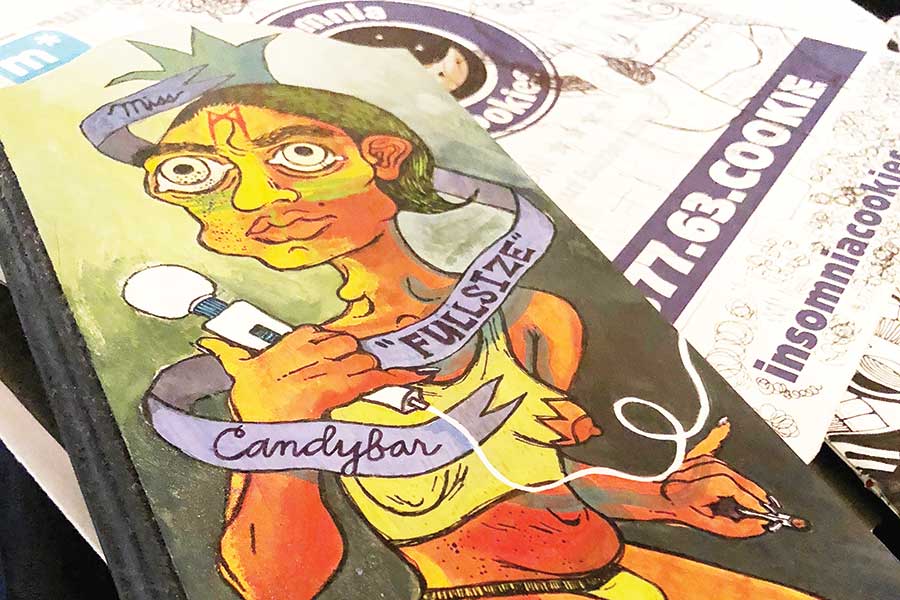The organizer of a recent market showcasing handmade crafts, jewelry, clothing and creative-arts services by local LGBTQ business owners and artists said she will host more such events after a promising turnout and positive feedback.
More than 100 people visited the third Philly Queer Bazaar Sept. 29 at Tattooed Mom. Event organizer Kisha Robinson is already planning the fourth event for December.
Gabe Loredo, a first-time vendor, said she was encouraged by the atmosphere and the response to her handmade food-inspired jewelry and illustrated prints.
“The bazaar’s welcoming environment for LGBTQ business owners made me feel comfortable to take a shot with vending and selling my art,” said Loredo, who sold a pair of pretzel-shaped earrings while a visitor spoke with her. “For a long time, I’ve been thinking of creating an Etsy page, but this was a perfect opportunity to commit myself to creating work that I could eventually sell. I don’t know if I would have felt confident in selling my work at other vending events.”
Fame Neal, owner of the Lezcronymz T-shirt company, isn’t new to vending, but said the queer bazaar helped spread her mission of dispelling gay stereotypes and supporting LGBTQ youth empowerment. Her shirts display off-color, attention-grabbing acronyms with positive meanings, like COOCH — Courageously Overcoming Obstacles and Challenges.
“I know that a lot of our acronyms are over the top, but I’m creating a colorful and creative T-shirt brand that would deliver deeper messages when you actually take a closer look at what each letter means,” said Neal. “I want to send the message that there’s a family waiting for young people struggling to come out or struggling to understand their sexual identity.”
Similarly, The Starfruit Project aims to provide “radical healing and growth” through creative writing and performance programs for queer and trans people of color, said founder and director Briyana Clarel.
Clarel set up a “healing space” at the market that featured Play-Doh for stress relief and an affirmation station, where visitors are encouraged to leave a positive message and take one written by someone else.
“There aren’t many spaces to provide healing services for people of color in the community. I’m fostering an environment that addresses trauma and positive ways of working through it while building community.”
Robinson, herself a crafter, noticed a lack of LGBTQ-identified vendors and events that exclusively featured queer business owners.
“I attended a few vending events and felt out of place,” she said. “I tried to find events that not only welcomed what I was selling, but also welcomed me as a queer person. I want this to be a regular thing for our community of creators.”

